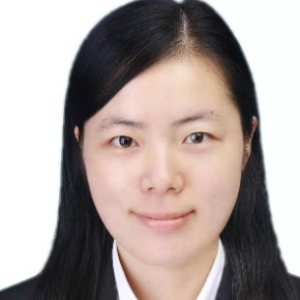Title : Determinants of depressive symptoms among patients with rheumatoid arthritis in China: A structural equation model
Abstract:
Background:
Depression has long been recognized as the most common mental disorder of rheumatoid arthritis (RA) patients. This study aimed to examine how personality traits, social support and clinical features including pain, disease activity, functional status, sleep quality, and fatigue influence on depressive symptoms in Chinese RA patients.
Methods:
This cross-sectional study was conducted from November, 2022 to June, 2023 among RA patients in Shanghai, China. The Visual analogue scale pain, Disease Activity Score in 28 joints, Health assessment questionnaire-disability index, 14-item Fatigue Scale, Social Support Rate Scale, Ten Item Personality Inventory, Pittsburgh Sleep Quality Index, and Hospital Depression Scale were used in this study. The following relationships among three hypotheses was analyzed by structural equation model (SEM): H1: clinical features including pain, disease activity, functional status, sleep quality, and fatigue have a direct effect on depressive symptoms in Chinese RA patients; H2: personality traits might work as a mediator between clinical features and depression; H3: social support is related to depressive symptoms, being a direct effect or an indirect effect through clinical features or personality traits.
Results:
The prevalence of depressive symptoms among 326 Chinese RA patients was 26.3%. The final model derived from data of 326 patients presented a good fit (χ2=103, χ2/df=1.69; GFI=0.96; AGFI=0.93; CFI=0.97; TLI=0.96; RMSEA=0.046). Clinical features had a total effect of 0.59 on depressive symptoms, of which β=0.33 (P=0.013) was an indirect effect through personality traits, indicating a mediating influence between this relationship; moreover, there was a significant direct association between clinical features and depressive symptoms (β=0.26; P=0.022). Personality traits (β=-0.65; P?0.001) had a much stronger relation with depressive symptoms than with clinical features. Social support had a total effect of 0.81 on personality traits, being a direct effect of β=0.52 (P?0.001) and an indirect effect of β=0.29 (P?0.001) through clinical features. The final proposed model explained 77% of the variance of depressive symptoms.
Conclusion:
Personality traits had a considerable influence upon depressive symptoms, while social support seemed to have a major effect on personality traits. It is necessary to apply comprehensive assessment and interventions of patients’ personality traits, clinical features, as well as social support, which could optimize their mental health.
Keywords: rheumatoid arthritis, depressive symptoms, structural equation model, personality traits
Audience Take Away Notes:
- This is the first study providing a comprehensive model that illustrates the correlations among clinical features (pain, disease activity, functional status, sleep quality, and fatigue), personality traits, social support and depression in Chinese patients with RA.
- Our study indicated that personality traits had a considerable influence upon depression, while social support seemed to have a major effect on personality traits among Chinese RA patients.
- Personality traits may be another realm of potential intervention towards minimizing the impacts of clinical features on patients’ depression.
- Positive psychology interventions such as mindfulness interventions, optimistic interventions, strength-building measures, and cognitive behavior interventions may be of paramount importance for improving the individual patient’s mental health.



